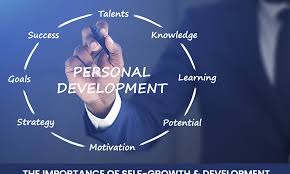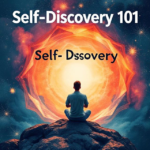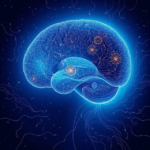Today, we’re diving into a topic that can completely transform your life—personal development. Sounds fancy, right? But at its core, personal development is simply about improving yourself every day, step by step. It’s not a sprint; it’s a lifelong journey that involves nurturing your skills, mindset, and habits to live a more fulfilling and purpose-driven life.
Let’s explore how you can embark on this exciting journey of self-improvement.
1. Understanding Personal Development
First things first—what exactly is personal development?
Think of it as building a better version of yourself. It’s about identifying areas where you can grow, be it professionally, emotionally, physically, or spiritually, and taking deliberate actions to improve in those areas.
Here’s a little secret: there’s no “final destination” in personal development. It’s not about reaching perfection; it’s about progress. Every tiny step forward counts.
2. The Power of Self-Awareness
Before you begin climbing the ladder of self-improvement, you must first understand where you currently stand. This is where self-awareness comes in.
Being self-aware means understanding your strengths, weaknesses, values, and goals. It’s about taking a moment to reflect on who you are and where you want to go.
Self-awareness is a game-changer because it forms the foundation for personal growth. Without knowing yourself, it’s like setting out on a road trip without a map. You might reach many places, but not necessarily the destination you truly aim for.
To improve your self-awareness:
Reflect regularly: Set aside time daily or weekly to ask yourself meaningful questions. What went well today? What could I have done better? What matters most to me right now?
Seek feedback: Sometimes we miss our own blind spots. Asking for feedback—from a friend, mentor, or colleague—can offer valuable insights.
Keep a journal: Writing down your thoughts and feelings helps you connect with your inner self and track your progress over time.
3. Setting Clear, Achievable Goals

Now that you’re aware of where you are, it’s time to set your sights on where you want to go. This is where goal setting comes in. Without clear goals, personal development can feel like wandering aimlessly. But with well-defined goals, you have a roadmap to guide you.
When setting goals, follow the SMART criteria:
- Specific: Be clear about what you want to achieve. For example, instead of saying, “I want to be healthier,” try, “I want to exercise for 30 minutes every day.”
- Measurable: Make sure you can track your progress. How will you know when you’ve achieved your goal?
- Achievable: Set goals that are challenging but not unrealistic. If you set the bar too high, you might set yourself up for frustration.
- Relevant: Make sure your goals align with your overall values and life vision.
- Time-bound: Set deadlines to keep yourself motivated and on track.
Breaking down larger goals into smaller, more manageable tasks will also keep you from feeling overwhelmed. For instance, if your goal is to read 12 books in a year, start by reading 10 pages a day.
4. Embracing a Growth Mindset
A critical aspect of personal development is the way you approach challenges. This is where the growth mindset comes into play. Coined by psychologist Carol Dweck, the growth mindset is the belief that abilities and intelligence can be developed through dedication and hard work.
People with a growth mindset are more likely to embrace challenges, learn from criticism, and persevere through setbacks. They don’t see failure as a reflection of their abilities, but as an opportunity to learn and grow.
To develop a growth mindset:
- View challenges as opportunities: Instead of avoiding difficult tasks, embrace them as chances to learn and grow.
- Focus on effort, not just results: Acknowledge the work you put in, not just the outcome. Every bit of effort brings you closer to your goal.
- Learn from mistakes: Don’t let failure define you. Learn from it, adjust your approach, and try again.
Adopting a growth mindset can revolutionize how you approach life’s obstacles and setbacks.
5. Building Positive Habits
It’s often said that we are what we repeatedly do. Our habits shape our lives more than we realize. The small, everyday actions we take build up over time to form our routines, and in turn, our results.
To develop habits that support personal growth, start small. Don’t try to change everything at once—this often leads to burnout. Focus on building one positive habit at a time. Here are a few habits that can help you in your personal development journey:
- Exercise regularly: Physical health is linked to mental and emotional well-being. Exercise boosts energy, improves mood, and enhances focus.
- Read daily: Reading expands your knowledge and opens up new perspectives. Even reading for 20 minutes a day can make a huge difference over time.
- Practice gratitude: Focusing on the positive aspects of life can increase happiness and reduce stress. Take a moment each day to list things you’re grateful for.
- Prioritize self-care: Taking time for yourself, whether it’s through relaxation, hobbies, or just resting, is crucial for long-term well-being.
Remember, habits are like compound interest. The more consistently you practice them, the more they pay off over time.
6. Time Management: Making Every Moment Count
One of the biggest challenges in personal development is managing time effectively. It often feels like there’s never enough time in the day to get everything done. But by learning how to manage your time wisely, you can make room for the things that truly matter.
Time management isn’t about filling every moment with work—it’s about being intentional with your time.
To get started with effective time management:
- Prioritize tasks: Identify what’s most important and tackle those tasks first. Use techniques like the Eisenhower Matrix (dividing tasks into urgent and important categories) to organize your to-do list.
- Break tasks into smaller chunks: Large tasks can seem overwhelming. Break them into smaller, manageable steps to keep moving forward.
- Set time limits: It’s easy to get caught up in a task and lose track of time. Set a timer to work in focused blocks, like 25 minutes of work followed by a 5-minute break (this is called the Pomodoro Technique).
Mastering time management allows you to balance your personal development efforts with your everyday responsibilities, ensuring that you can make consistent progress.
7. The Importance of a Positive Environment
Your environment has a powerful influence on your ability to grow and develop. If you’re constantly surrounded by negativity, it can drain your energy and hinder your progress. On the other hand, a positive environment can inspire you to do your best and keep you motivated.
Creating a supportive environment involves:
- Surrounding yourself with positive people: Build relationships with people who uplift and support you. Seek out mentors, friends, and colleagues who encourage your growth.
- Decluttering your space: A clean, organized environment can help clear your mind and boost productivity.
- Avoiding negativity: Whether it’s news, social media, or toxic relationships, minimize exposure to negativity that holds you back.
An environment that nurtures your growth will help you stay on track with your personal development goals.
8. Continuous Learning and Growth
Personal development doesn’t stop after achieving a few goals. The most successful people are those who are constantly learning and evolving. Whether it’s acquiring new skills, reading new books, or attending workshops, the commitment to continuous learning is key to staying ahead.
In today’s world, where things are changing rapidly, staying updated and adaptable is crucial. So, always be curious, seek knowledge, and stay open to learning new things.
Conclusion: Your Journey of Personal Growth
Personal development is not a destination—it’s a lifelong journey. It’s about making continuous progress, no matter how small, in different aspects of your life. By focusing on self-awareness, setting goals, developing a growth mindset, building positive habits, managing time, and creating a supportive environment, you’re on your way to becoming the best version of yourself.
Remember, growth takes time, and there will be setbacks along the way. But each challenge is an opportunity to learn and improve. So, embrace the process, keep moving forward, and celebrate your progress, no matter how small it may seem. The best version of you is already on its way.
Are you ready to begin your personal development journey? The first step is just one decision away. Let’s take that step together.
Related posts:
 Is the Invention of AI the Full Development of Mankind?
Is the Invention of AI the Full Development of Mankind?
 Self-Discovery 101: How to Unlock Your True Potential
Self-Discovery 101: How to Unlock Your True Potential
 Unleashing the Chanakya Within You: Timeless Leadership Lessons for Personal and Professional Success
Unleashing the Chanakya Within You: Timeless Leadership Lessons for Personal and Professional Success
 Discover Your Destiny: Unleash Your True Potential
Discover Your Destiny: Unleash Your True Potential
 Unlocking the Secrets of Sleep: How Sleep Physiology Shapes Brain Function
Unlocking the Secrets of Sleep: How Sleep Physiology Shapes Brain Function
 Embracing the Tranquility: A Guide to Finding Full Relaxation on a Rainy Day
Embracing the Tranquility: A Guide to Finding Full Relaxation on a Rainy Day
